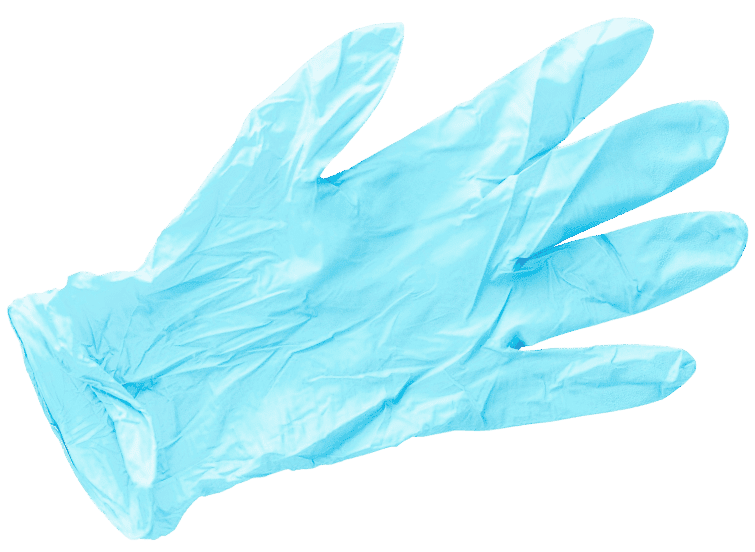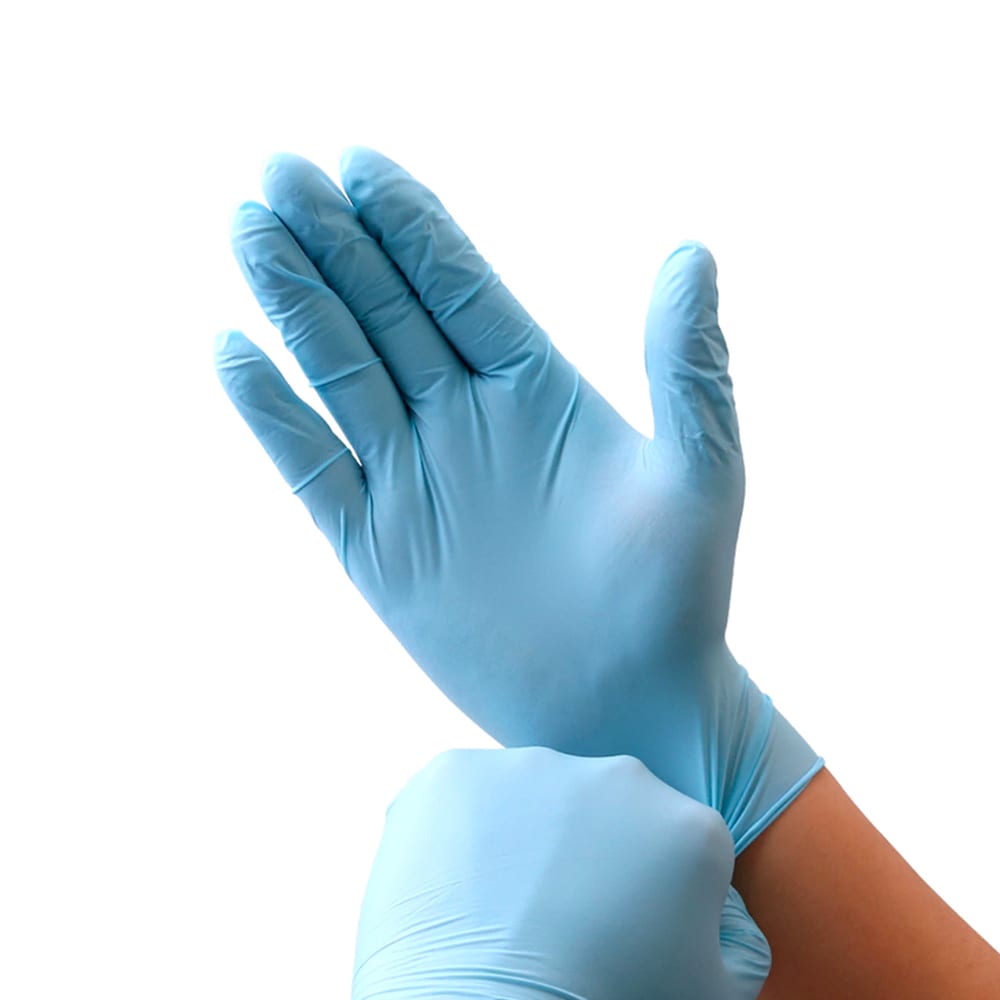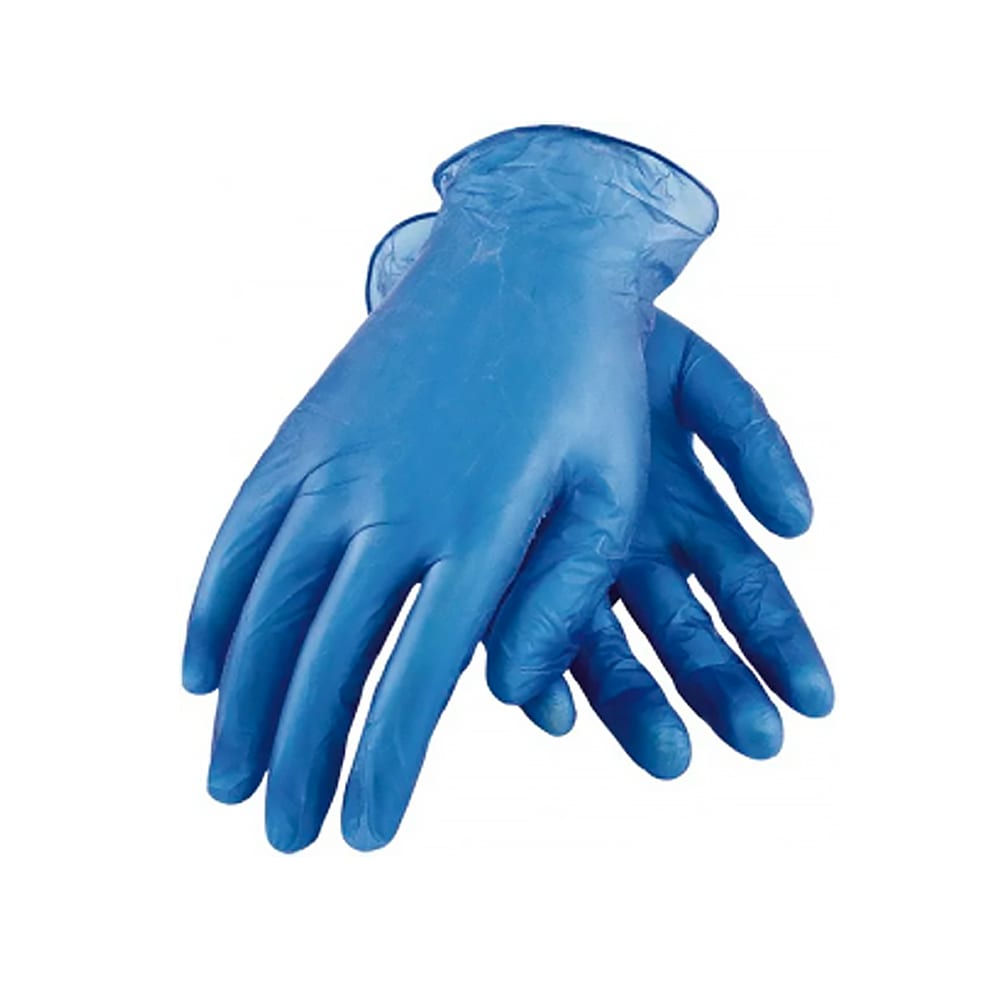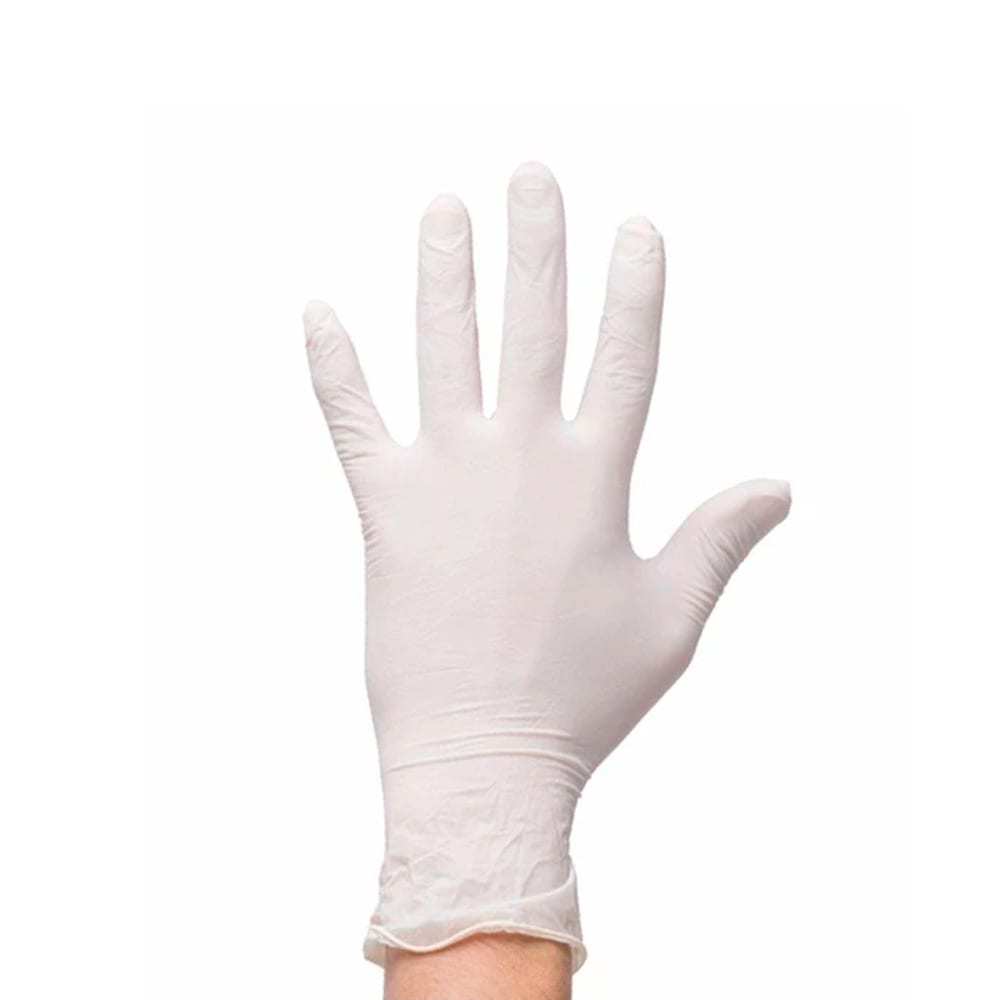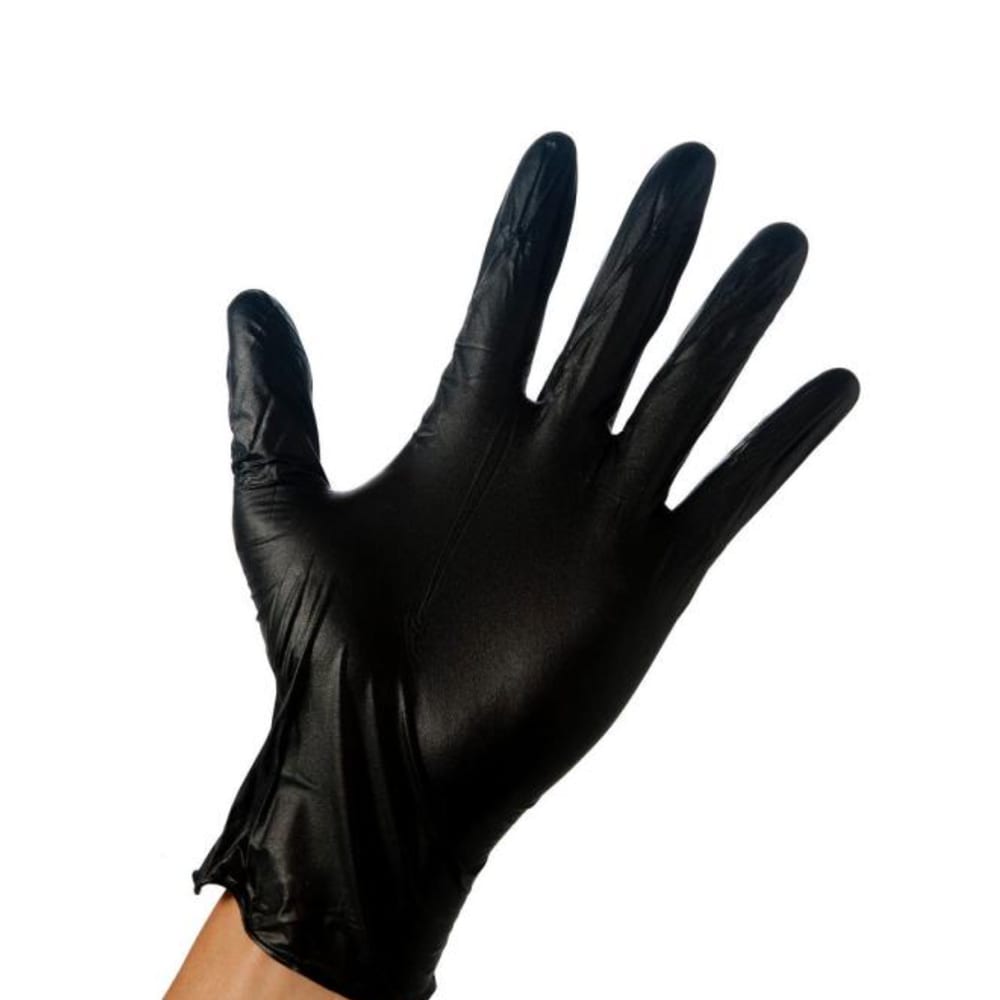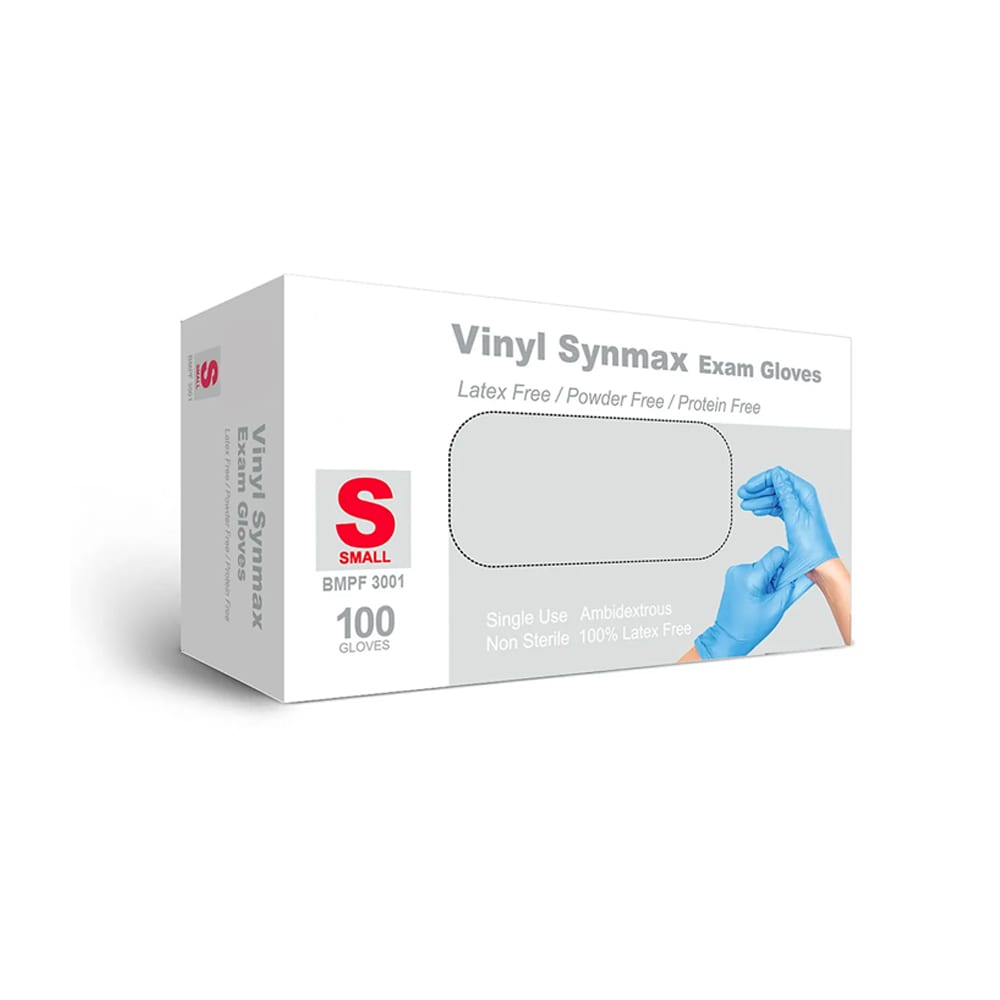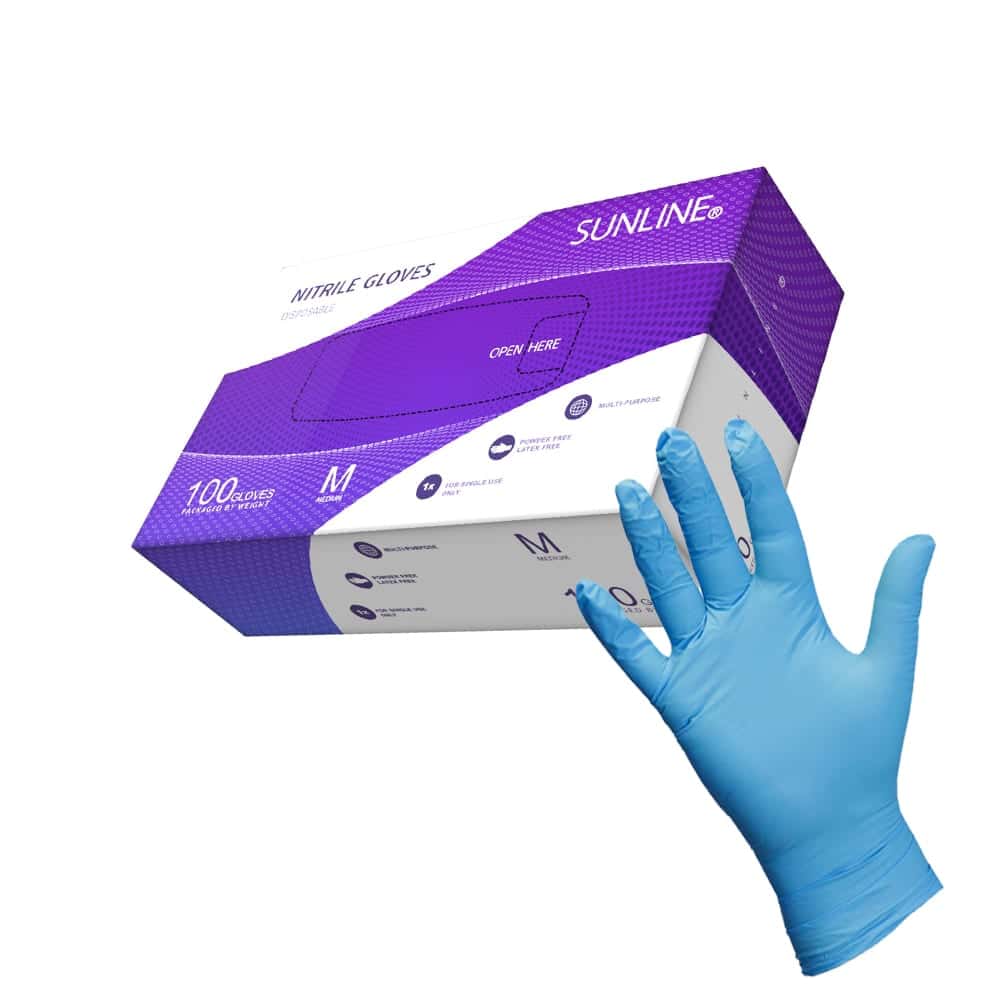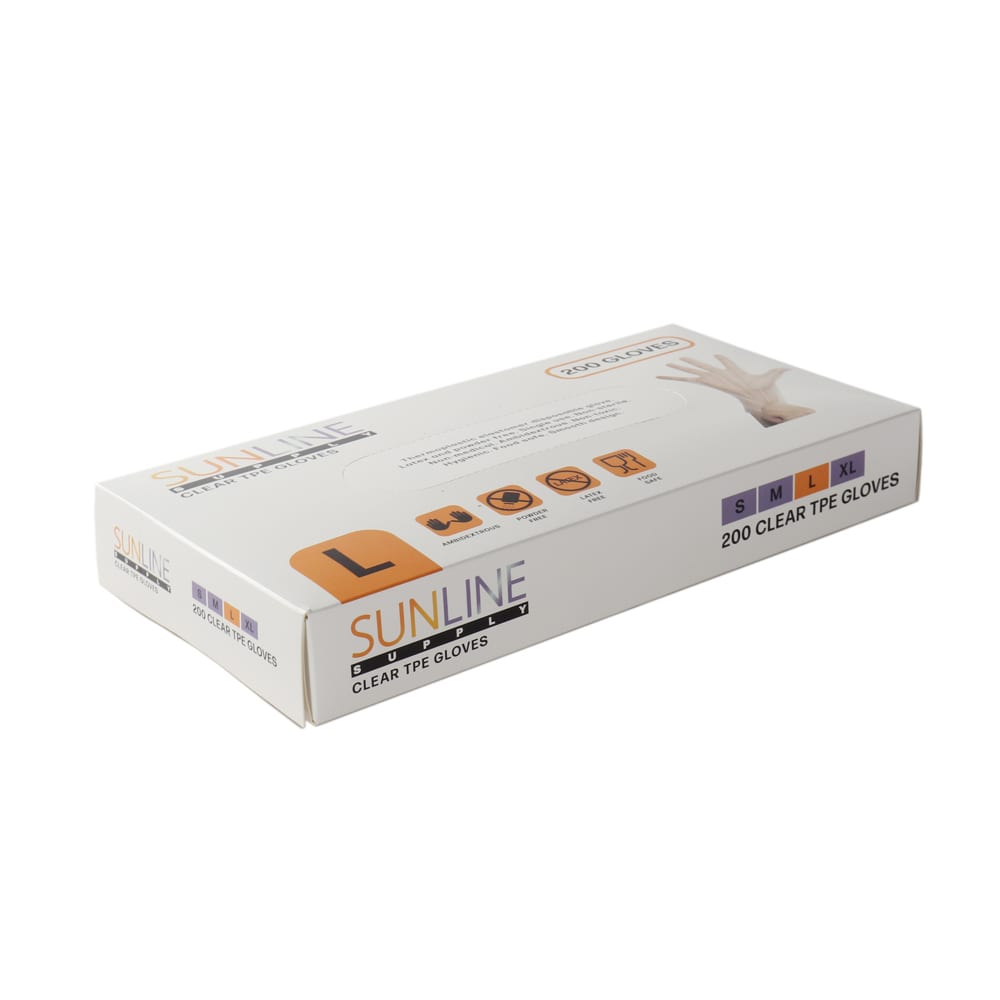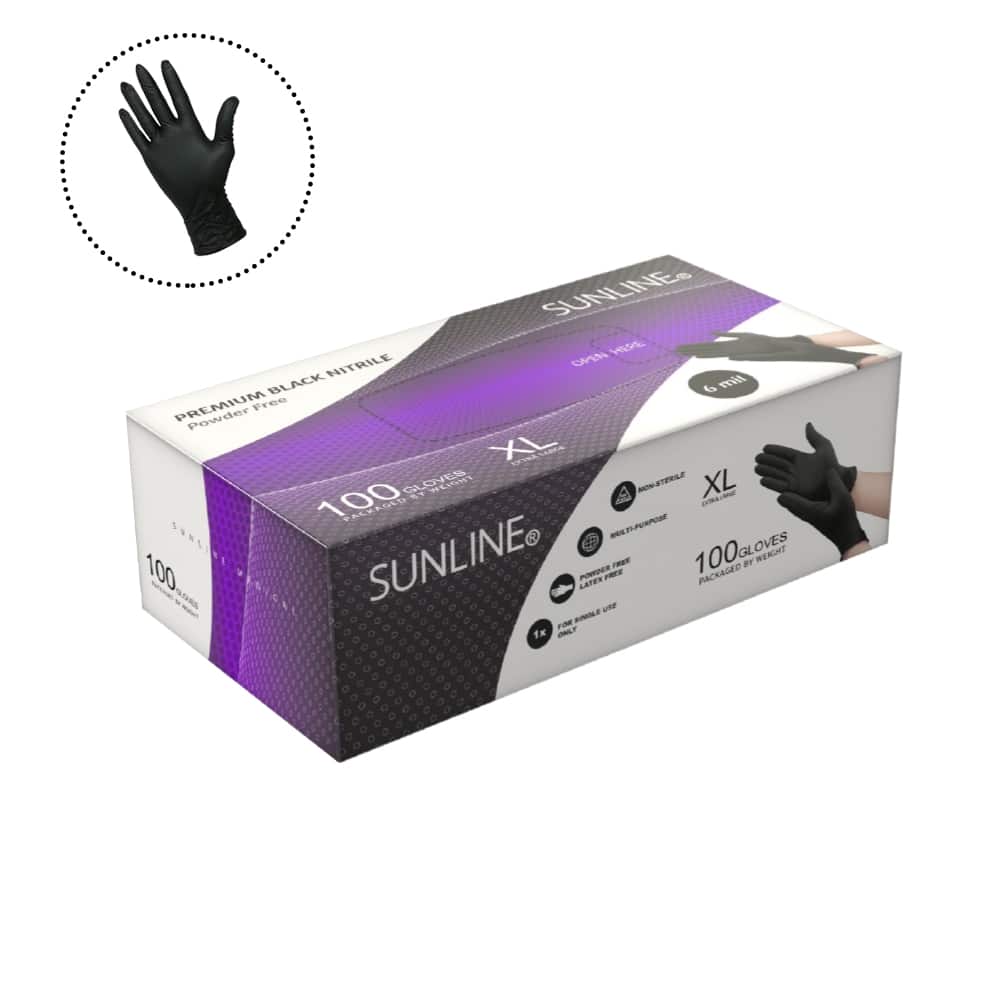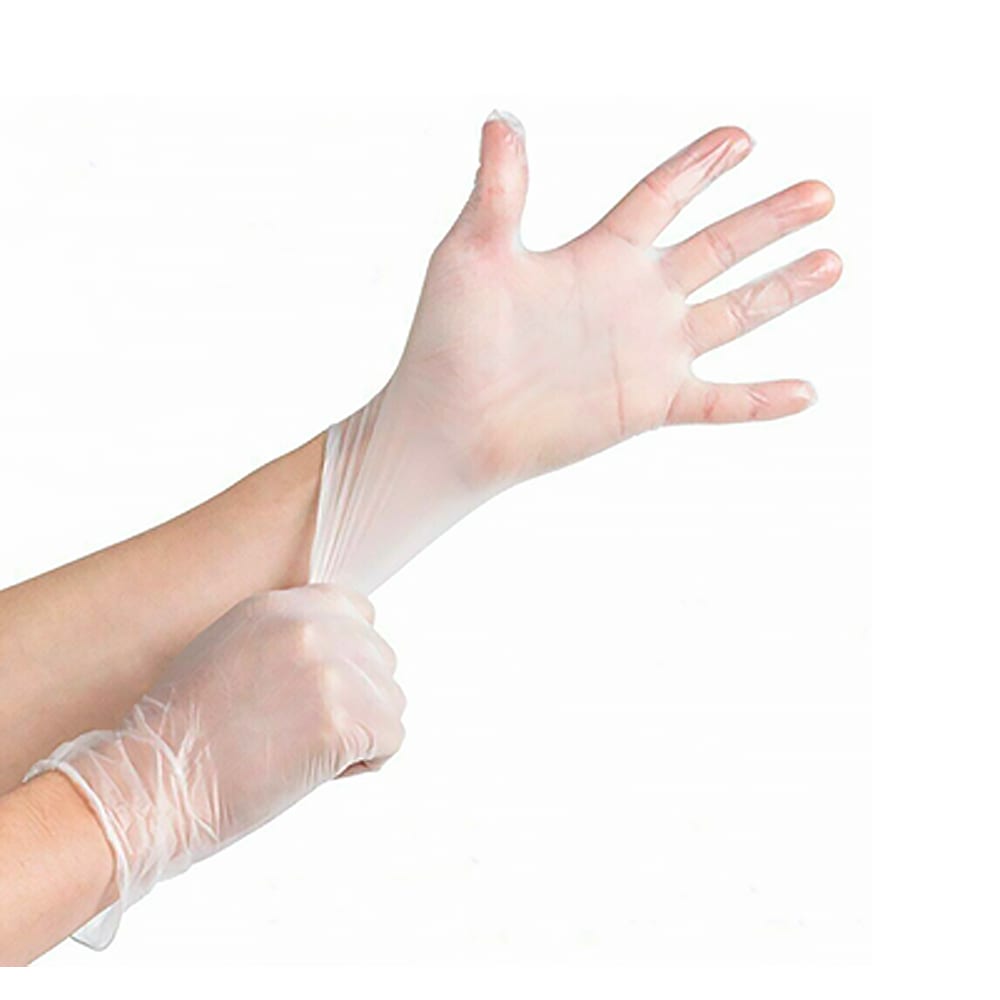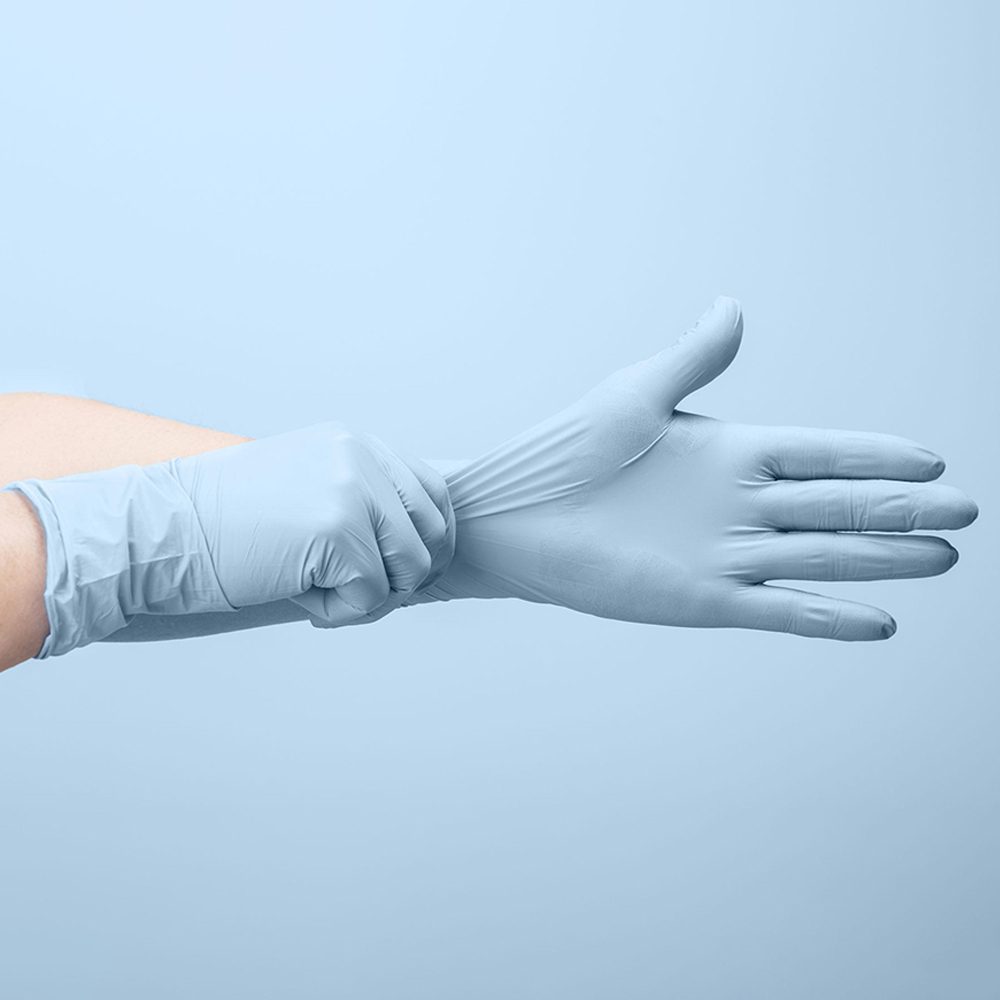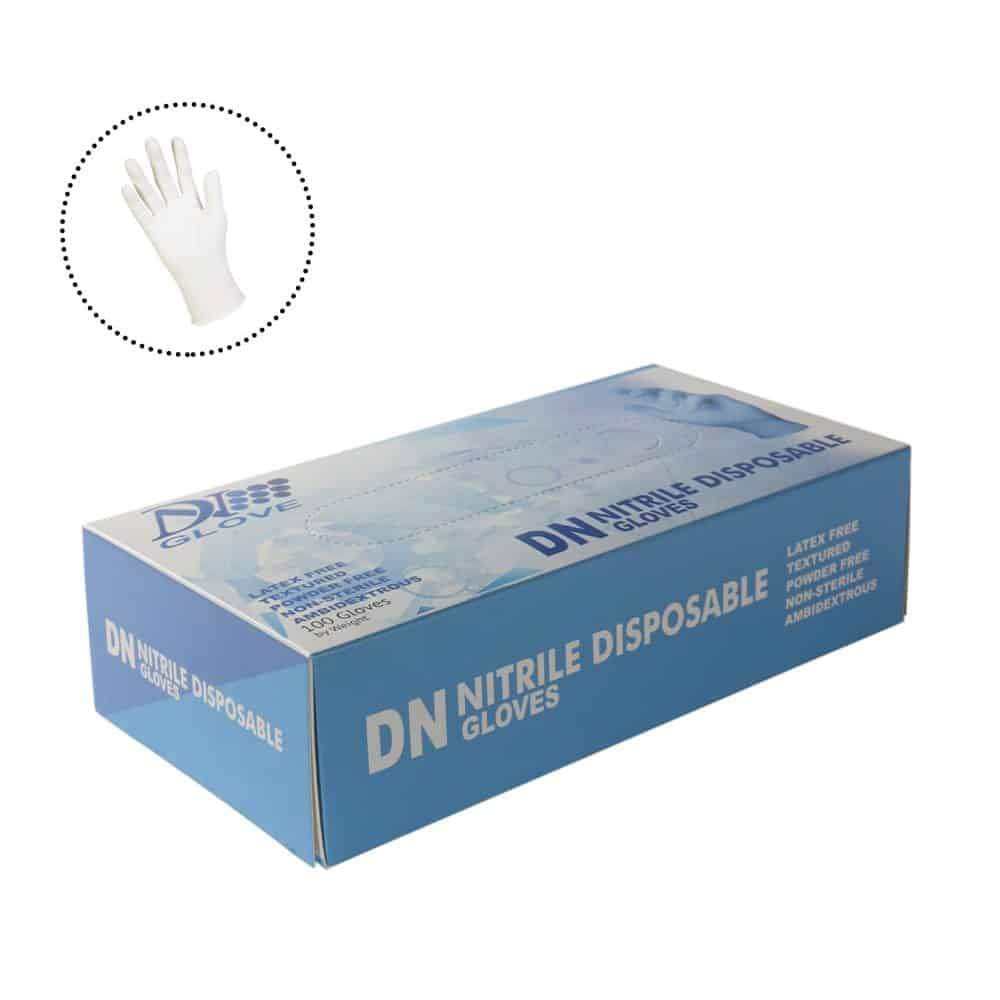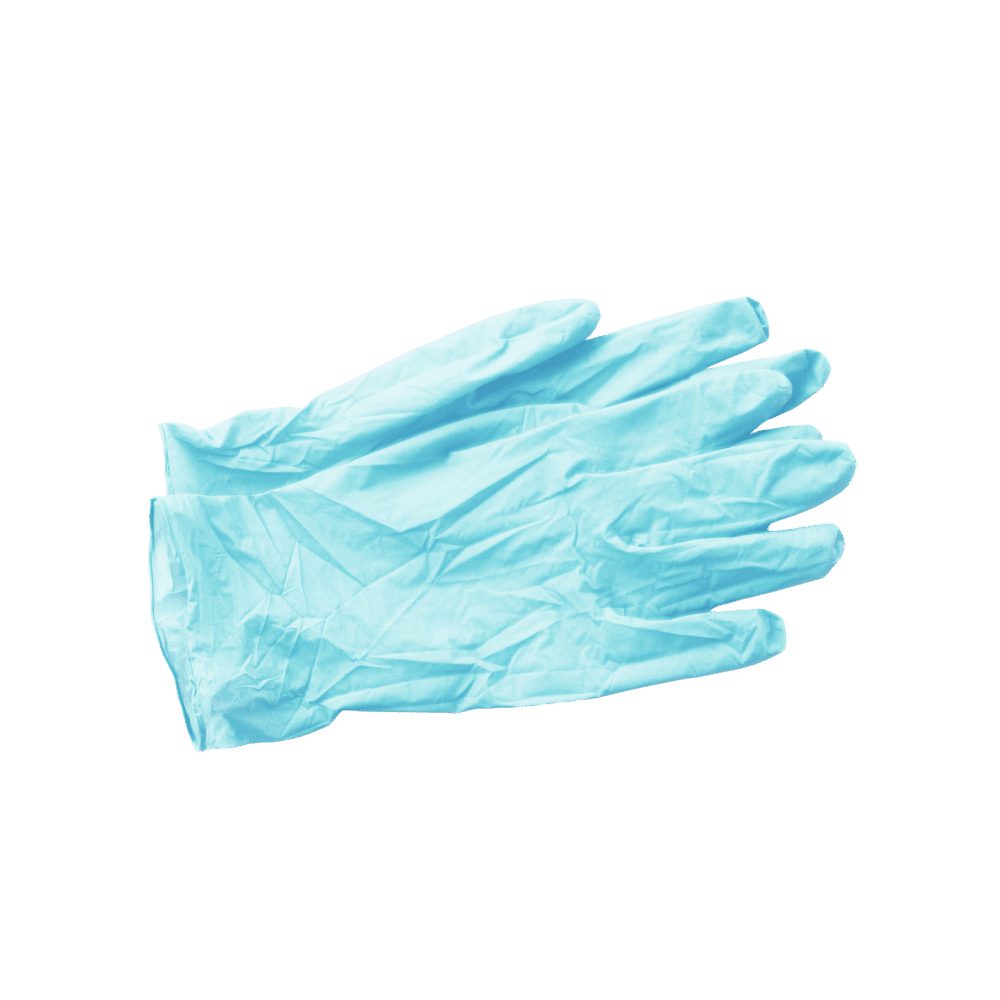
Disposable Gloves
Shop by Type
Shop by Size
Shop by Color
Shop by Industry
Shop by Specifications
Our Locations

NORTH AMERICA
- Los Angeles, California
- Bridgeport, Pennsylvania
- Vancouver, BC (Alliance)
- Toronto, Canada (Alliance)
Asia
- Vietnam
- China
- India
- Malaysia
- Thailand
We work with reliable and tested manufacturers across the globe. All our gloves are sourced from high quality, FDA and CE certified, expertly-vetted vendors.
Contact Us Today
Disposable Gloves
When you need to buy disposable PPE gloves for your workplace, you have many options to consider. You need to understand your application, weigh the benefits of different glove materials and determine what certifications and requirements you must satisfy. At SUNLINE Supply, we offer wholesale disposable gloves for medical, food service, automotive, beauty and dental uses. To help you determine what types you need, review our disposable gloves guide. Then, browse our shop to buy PPE gloves online or contact our team for more information.
Contact Us TodayUses of Disposable Gloves
Gloves act as a barrier to germs and chemicals. They protect the wearer from exposing their skin to harmful substances. They can also stop microbes present on a person’s hands from spreading through touch.
Many industries use gloves for one or both of these applications.
Contact Us Today
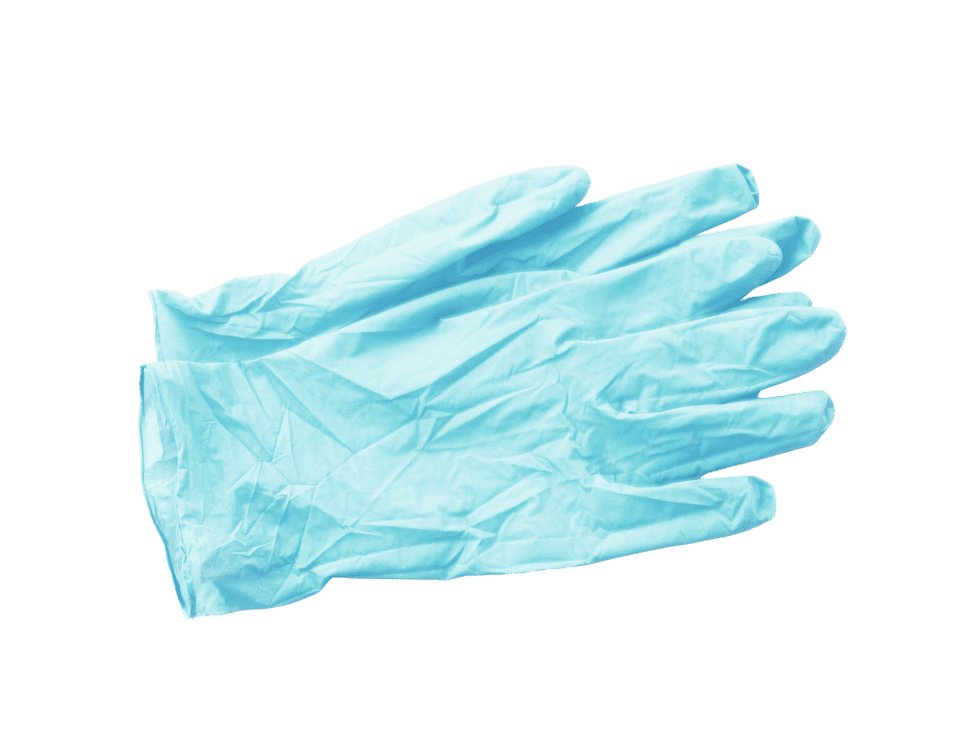

Hospitals
Healthcare personnel work in a contagion-prone environment and perform procedures that could lead to infection. Close contact with many patients could cause germs to spread from one person to the next. Any task that involves needles, incisions, wound care or proximity to membranes needs added protection against germs. Here, gloves protect hospital workers and their patients alike.
In hospital settings, workers must wash or sanitize their hands before donning gloves. Wearing gloves provides added protection from germs that get missed during hand-washing. They also stop any germs from a sick patient from clinging to the healthcare worker’s hands. Standard procedures require hospital workers to discard their gloves after each patient encounter. That way, any germs on the gloves do not travel to the next patient.
Gloves can also be necessary when hospital workers use harmful chemicals. Disinfecting surfaces with harsh cleaning products may require workers to wear gloves to protect their skin. Learn more about gloves for healthcare applications and discover our selection of hospital gloves!
Contact Us Today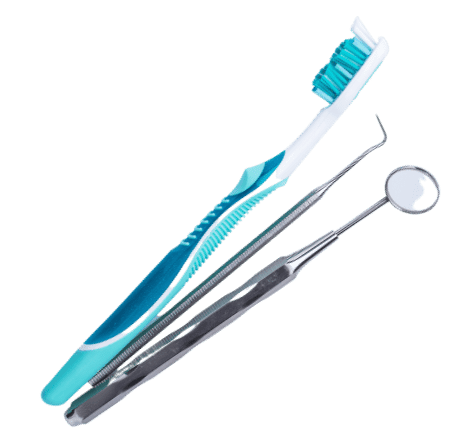
Dentistry
As a healthcare industry subsector, dentistry has a critical need for disposable medical gloves. Performing work in patients’ mouths can expose them to germs. Dental surgery makes gloves even more crucial, as it’s vital to prevent gum infections after a tooth extraction or another procedure.
In dental work, disposable gloves must enhance dexterity. Dentists and hygienists work in small spaces and need precision. They must use tight-fitting gloves and may also want textured fingertips to improve their grip while using sharp tools.
Learn More
Food Service
The food service industry has similar needs for infection control. Here, donning gloves while preparing or serving meals prevents germs from touching food. It can also stop bacteria present on raw meat or vegetables from reaching a food service worker’s hands.
In food preparation, workers must also worry about cross-contamination. They must use different gloves when working with raw meat than they would with vegetables or other food items. They must also use a fresh pair of gloves when switching from preparing to serving food. Loose-fitting vinyl, nitrile and latex gloves let workers quickly change gloves and switch tasks in the kitchen. They may also wear disposable gloves over a pair of washable protective work gloves when working with sharp cutlery.
Learn More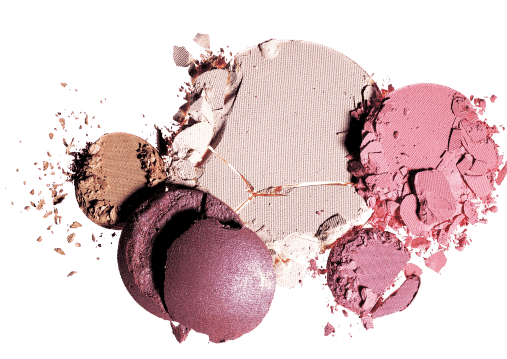
Beauty Industry
Disposable gloves offer protection from many hazards in salons and beauty shops. When working with hair bleach or scissors, gloves keep skin safe from chemical irritation and cuts. They can also prevent contamination. Anything from waxing to tattoos and piercing can expose workers to bodily fluids or skin infections. Gloves protect workers and customers from these exposures.
Learn More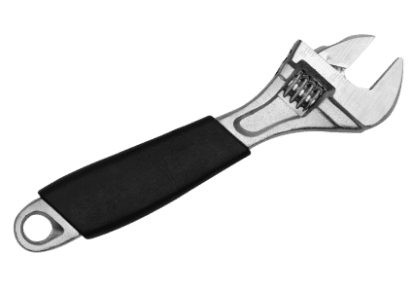
Mechanic and Automotive
Mechanics work with oil, grease, chemicals and sharp engine parts. Disposable work gloves keep their hands clean when working with engine grease and protect their skin from chemical irritants. Thicker nitrile gloves can also prevent cuts and other injuries when working with rusty and sharp components.
Learn More
Disposable Gloves Materials
Single-use gloves come in many varieties. Each type has a different blend of protection, comfort, durability and benefits. Features of disposable gloves vary by the material types, which include the following.

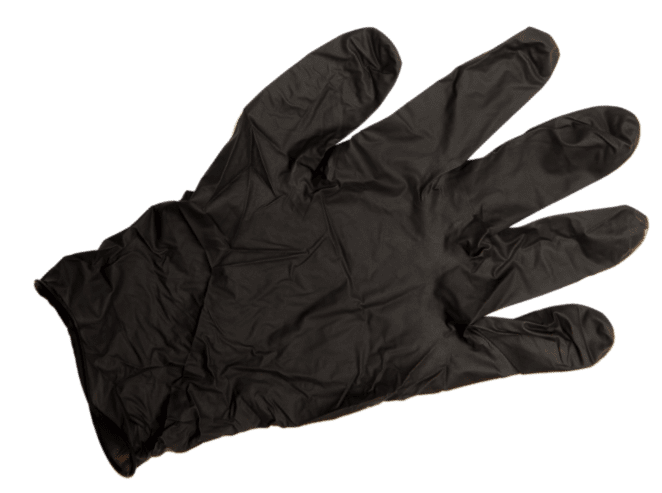
Nitrile
Synthetic rubber nitrile gloves are stretchy and durable. They’re an excellent choice for workers or patients with latex allergies. They are strong enough to protect against viruses and chemicals. With thicknesses up to 3 mil for food service and 6 mil for industrial use, they can withstand many harsh applications while offering decent tactile sensitivity.
They have the advantage over latex for durability and chemical resistance. In medical settings, they provide excellent puncture resistance. They’re also the preferred option when working with hazardous or corrosive chemicals.

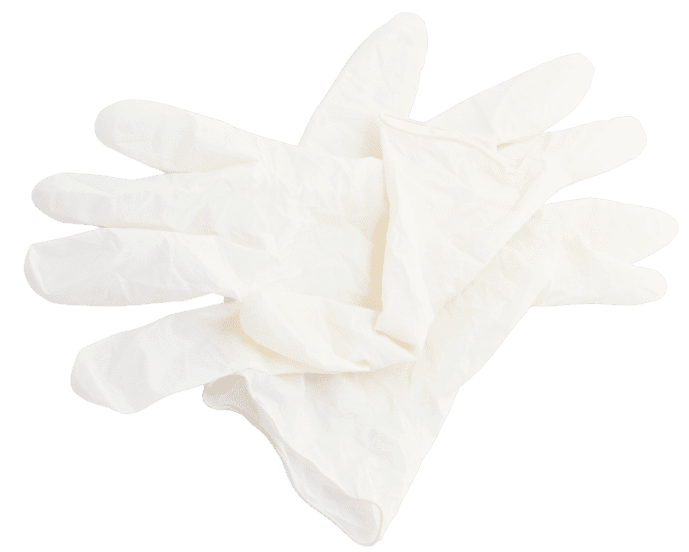
Vinyl
Vinyl gloves feature polyvinyl chloride construction, especially for food service. They are thin, safe and easy to don and doff. Food service workers can use them for prep, cooking and serving. Besides food service and processing, vinyl gloves are ideal for hairdressing, aesthetic services, light cleaning and janitorial work, chemical experiments and healthcare.
Vinyl gloves have the cost advantage. They’re also comfortable and latex-free. While offering more chemical protection than latex, they do not shield against germs. Their protective barrier loses its integrity when stretched. Their low cost and low-level safety make them an excellent choice for non-hazardous environments with minor infection risks.


TPE
Thermoplastic elastomer (TPE) is a plastic-based latex alternative. TPE gloves offer excellent elasticity, contributing to a comfortable fit and better flexibility and range of motion. Waterproof and resistant to liquids, these gloves have applications in food handling, the beauty industry and some clinical settings. Their lightweight construction makes them more cost-effective and comfortable.
TPE is a popular vinyl alternative. Like vinyl, these gloves are primarily for food handling applications. They are also more affordable.

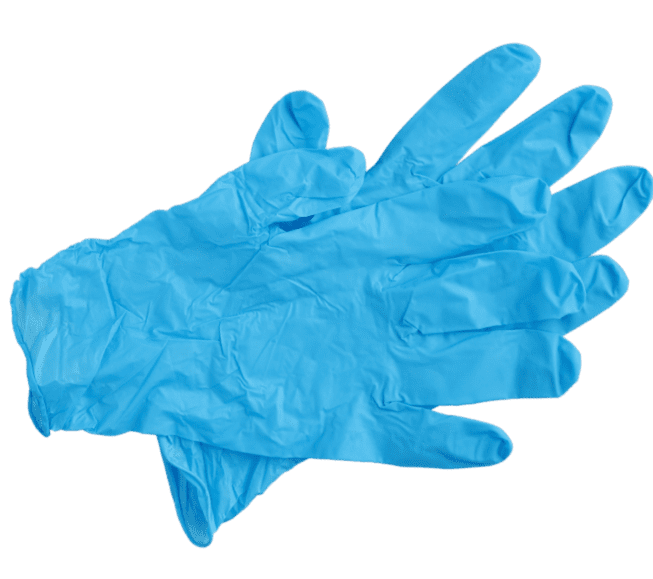
Latex
When allergies aren’t a concern, surgeons, dentists and healthcare workers usually prefer latex gloves. They have the best comfort, fit and elasticity. They also provide more tactile sensitivity, excellent for jobs requiring precision, like surgery and dental work. Latex also comes from natural rubber, which is biodegradable. Their versatility has made them a go-to choice for general industry, food prep, dishwashing, janitorial work and medical exams. They also come in powder and powder-free options.
However, latex allergies are becoming more common, and some states have outlawed the material’s use. California, Ohio, Arizona, Connecticut, Oregon, Hawaii and Rhode Island have banned latex gloves in the food service industry. Hawaii also prohibits them for first responders and requires medical and dental workers to ask about patients’ latex allergies. Besides the potential for allergic reactions, latex’s primary disadvantage is the added cost compared to vinyl.

Types of Disposable Gloves
Single-use gloves come in many varieties. Each type has a different blend of protection, comfort, durability and benefits. Features of disposable gloves vary by the material types, which include the following.

Non-Medical or Industrial-Grade
Industrial-grade gloves are non-medical. They typically share most of the characteristics of medical-grade gloves, missing the standards by a slim margin. While the Food and Drug Administration has not approved them for hospitals, non-medical gloves offer excellent protection. Non-medical gloves must still receive FDA acceptance with nearly as rigorous standards.
While industrial-grade gloves rival their medical-grade counterparts, they do not exceed them. Despite the common misconception, industrial-grade gloves do not offer superior durability over medical gloves. Still, non-medical gloves are excellent for most industrial applications. Some may be food safe. Many offer the protection needed for beauty and hairdressing, food handling, auto repair and janitorial duties.
510(K) Certified
The FDA requires specific certifications for medium-risk medical devices like disposable gloves. A premarket notification, or 510(k) certificate, acts as a way to verify that a new medical device is substantially equivalent to a device that’s already received approval for sale in the United States. Look for a 510(k) certificate when you’re shopping for PPE gloves for sale for a medical, dental or hospital setting.
Chemo-Rated
Chemotherapy drugs pose occupational risks and can permeate some types of gloves without any visual indication. Some chemotherapy chemicals can also degrade the glove material. Chemo-rated gloves have passed the ASTM D6978 Assessment of Resistance of Medical Gloves to Permeation by Chemotherapy Drugs test. These gloves are safe to use when administering or handling chemotherapy drugs. Chemo-rated gloves are usually nitrile or latex. Vinyl gloves are not chemo-safe.
Non-Sterile
Usually, when you need to buy medical gloves in bulk, you’re looking for non-sterile options. Non-sterile gloves are medical-grade and safe to use in most minor medical applications, including exams and minor procedures. They allow nurses and doctors to maintain a clean environment and reduce the spread of germs in most patient interactions that don’t require a sterile environment. All our exam gloves have earned approval for non-sterile applications.
Powder-Free
Powdered gloves contain cornstarch, which improves grip, reduces sweat and makes for fast donning. They used to be in high demand among healthcare workers thanks to these advantages. In December 2016, the FDA issued a final rule forbidding powdered gloves in clinical settings. Powdered exam gloves, powdered surgeon’s gloves and glove powder all pose significant health risks, including wound inflammation and post-surgical adhesions.
Today, most medical-grade gloves must be powder-free. Even outside medical settings, powder-free gloves are a safer option. Breathing in glove powder can cause airway inflammation, a threat to anyone wearing or exposed to powdered gloves. Long-term exposure to glove powder may irritate the skin, and powder can also contaminate food during food prep.
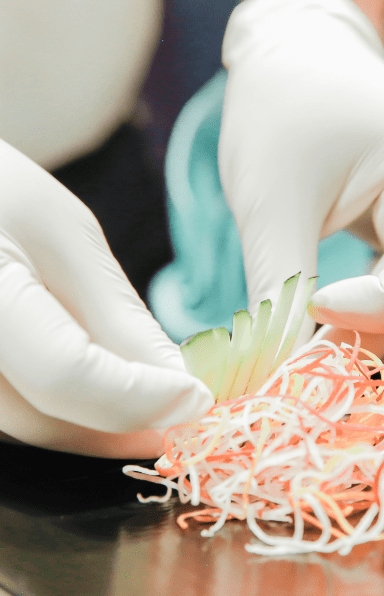
Latex-Free
Latex allergies can produce many dangerous symptoms. Latex gloves can cause contact dermatitis and allergic contact dermatitis, which are symptoms of latex sensitivity. A latex allergy creates immediate hypersensitivity, local swelling, redness, edema, itching and other reactions. It can also cause potentially life-threatening symptoms such as:
- Conjunctivitis
- Rhinitis
- Urticaria
- Laryngeal edema
- Bronchospasm
- Asthma
- Angioedema
- Anaphylaxis
Repeated exposure to latex products worsens the reaction, which means latex allergies are increasing. Healthcare workers, who may wear latex daily, are more likely to develop latex sensitivities. OSHA estimates 8 to 12% of the healthcare worker population have latex sensitivities, compared to less than 1% of the general population. Thus, latex-free glove options are critical in medical environments to protect healthcare workers and patients alike.
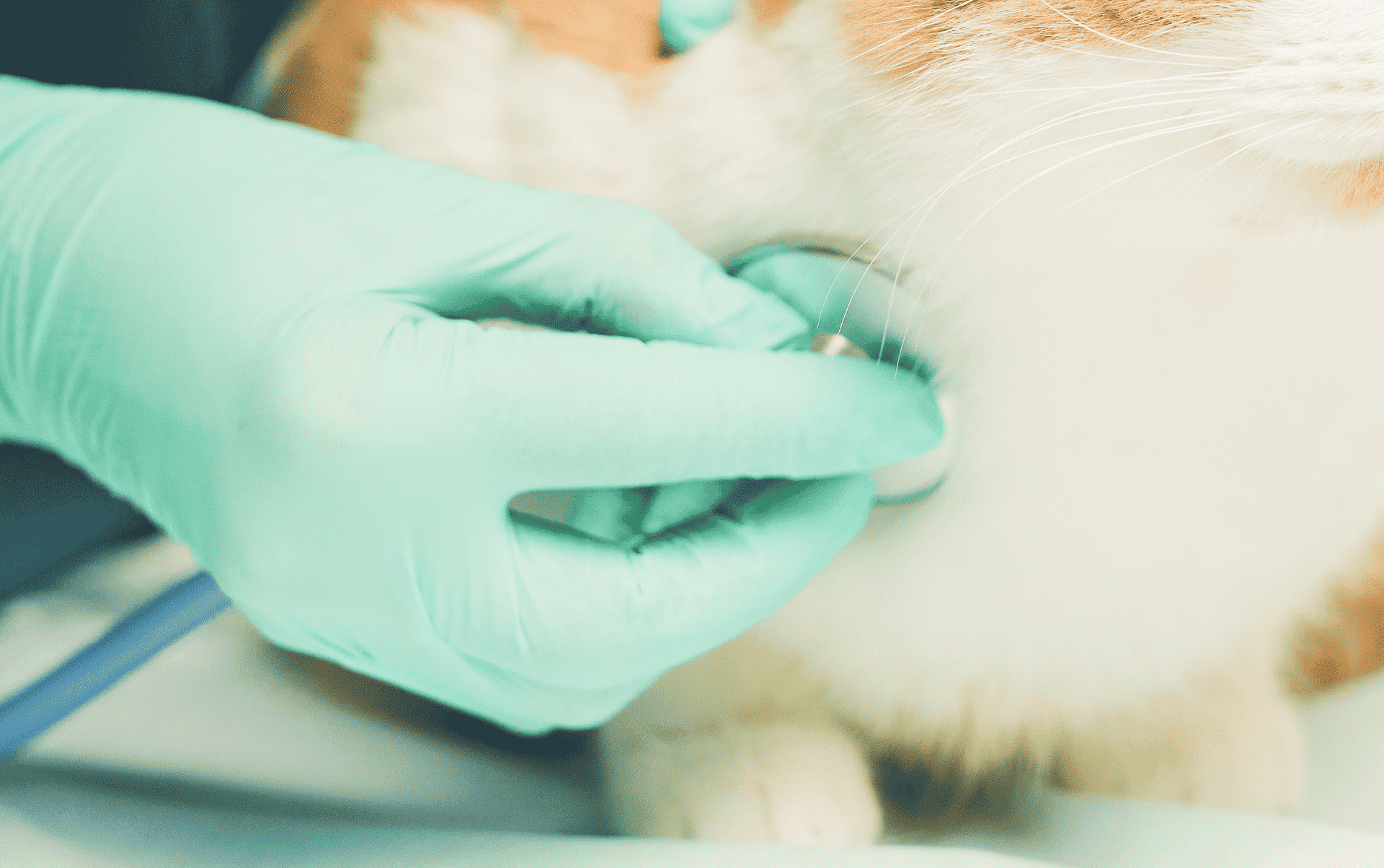
Disposable Glove Colors
Nitrile
Blue, White and BlackTPE
Clear, black and blueVinyl
Blue and BlackColor-coding gloves is a common practice when workers must avoid cross-contamination. It also aids medical workers who use a double-gloving technique. When the outer glove is a different color from the inner glove, punctures and tears in the outer layer become easy to spot. Generally, double gloving works best when the two chosen colors have high contrast, which is why most people don’t use transparent gloves double-gloving.
Outside of double-gloving, workplaces use glove color coding in several ways. A medical facility that uses latex, vinyl and nitrile gloves might use color to distinguish between the three. A hospital could also color-code within a single glove type. For instance, it might use purple for chemotherapy-suitable gloves and blue for exams and other procedures.
Food service workers may also use color-coded gloves. Designating one color for raw meat and another for other foods can prevent cross-contamination in food handling.
The disposable gloves for sale from SUNLINE Supply come in several colors depending on the material. We make color-coding simple with these color options.
Disposable Glove Sizes
Some manufacturers offer gloves in unisex sizing. Tighter-fitting gloves may need separate men’s and women’s sizing. When choosing glove sizes for your workplace, look at the sizing chart that goes with your preferred glove and brand. You can determine a worker’s glove size by taking two hand measurements. First, wrap a fabric tape measure width-wise around the hand at the fullest part, excluding the thumb. Then, measure lengthwise from fingertip to the base of the hand. Choose the larger of the two numbers, and round up to the nearest half-inch. At SUNLINE Supply, we categorize our gloves into four sizes.
The exact sizing depends on the glove type, manufacturer and whether it has a loose- or tight-fitting design.
Shop Our GlovesSmall Gloves
Small unisex gloves may range from 6” to 8”. Men’s small gloves may go up to 8.5”, while women’s smalls are 6.5”.
MEDIUM Gloves
Medium unisex gloves range from 8” to 9”. Men’s medium gloves range from 8.5” to 9”. Women’s mediums are 7”.

LARGE Gloves
Large unisex gloves range from 9” to 10”. Men’s large gloves go from 9.5” to 10”. Women’s larges are 7.5”.

EXTRA-LARGE Gloves
Unisex extra-large gloves are 10” to 11”. Men’s extra larges are 10.5” to 11”. Women’s extra-large gloves are 8”.

Why Choose SUNLINE Supply for Bulk Disposable Gloves?
SUNLINE Supply offers many different glove brands, materials and styles. Our offerings include:
- Bulk nitrile gloves
- Kingfa Nitrile Gloves
- Mooni Nitrile Gloves
- Sunline Clear TPE gloves
- Vinyl gloves from Synmax
- Vinyl gloves from CoreStar
We’re also working hard to expand our disposable glove offerings and can help you find the gloves your workplace needs. We offer 510(k) certified, non-medical, non-sterile, chemo-rated, powder-free and latex-free options.
We understand that you put your trust in your PPE supplies. With counterfeit medical supplies becoming more prevalent, you need a partner you can trust. Our factories are FDA-approved, and so is every product in our collection. We’ve done all the hard work to vet our manufacturers and have personally felt and inspected all our PPE products. Whatever conditions and jobs you use your gloves for, you can trust they meet all safety standards and ratings for your applications.
View all the specifications, certificates and testing results for any of our nitrile gloves through our vendor information kits, available online. Feel free to contact us to view information kits for our vinyl or TPE gloves.
Request Your Quote for Disposable Gloves
We offer disposable gloves in bulk for medical and non-medical applications. Send us your requirements through our glove quote request form, and we’ll be in touch with suitable options and a delivery estimate. Or, shop medical and non-medical disposable gloves on our e-commerce store. You can also buy medical gloves from Synmax or TPE gloves online today.
Contact Us Today
